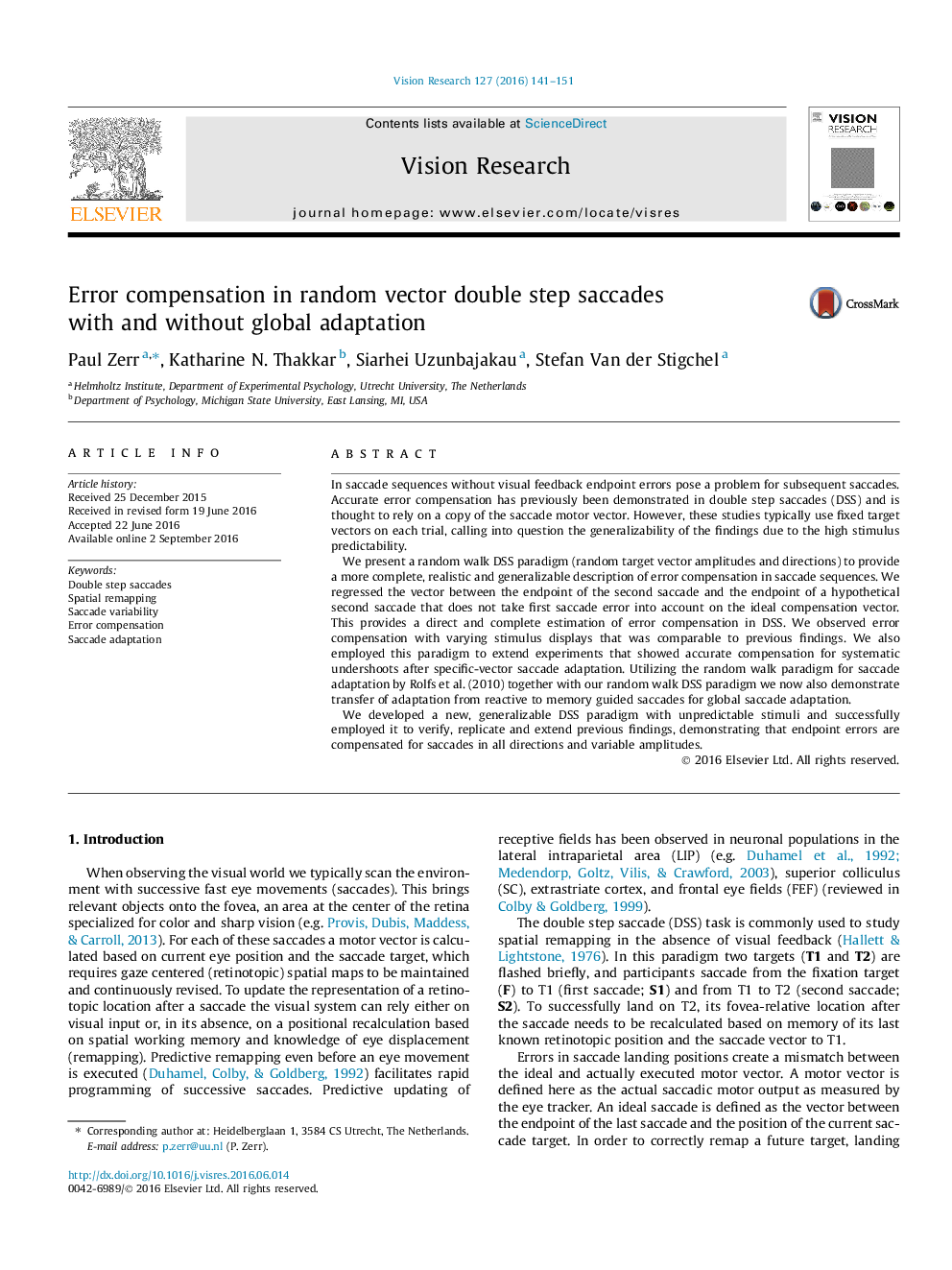| Article ID | Journal | Published Year | Pages | File Type |
|---|---|---|---|---|
| 6202885 | Vision Research | 2016 | 11 Pages |
In saccade sequences without visual feedback endpoint errors pose a problem for subsequent saccades. Accurate error compensation has previously been demonstrated in double step saccades (DSS) and is thought to rely on a copy of the saccade motor vector. However, these studies typically use fixed target vectors on each trial, calling into question the generalizability of the findings due to the high stimulus predictability.We present a random walk DSS paradigm (random target vector amplitudes and directions) to provide a more complete, realistic and generalizable description of error compensation in saccade sequences. We regressed the vector between the endpoint of the second saccade and the endpoint of a hypothetical second saccade that does not take first saccade error into account on the ideal compensation vector. This provides a direct and complete estimation of error compensation in DSS. We observed error compensation with varying stimulus displays that was comparable to previous findings. We also employed this paradigm to extend experiments that showed accurate compensation for systematic undershoots after specific-vector saccade adaptation. Utilizing the random walk paradigm for saccade adaptation by Rolfs et al. (2010) together with our random walk DSS paradigm we now also demonstrate transfer of adaptation from reactive to memory guided saccades for global saccade adaptation.We developed a new, generalizable DSS paradigm with unpredictable stimuli and successfully employed it to verify, replicate and extend previous findings, demonstrating that endpoint errors are compensated for saccades in all directions and variable amplitudes.
